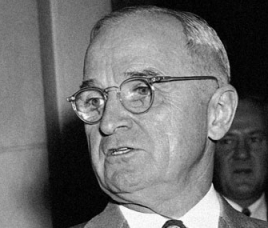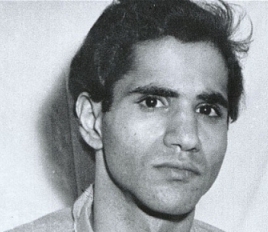What Happened On April 23rd?
April 23, 1616: William Shakespeare died in Stratford-on-Avon. According to tradition, he was born on April 23, 1564, meaning he died on his 52nd birthday. Today, nearly 400 years later, his plays are performed and read more often and in more nations than ever before. In a million words written over 20 years, he captured the full range of human emotions and conflicts with a precision that remains sharp today. As poet and dramatist Ben Jonson said, “He was not of an age, but for all time.”
April 23, 1900: The word “hillbilly” was first used in print in an article in the New York Journal. It was spelled a little differently; as the story said that a Hill-Billie was “a free and untrammeled white citizen of Alabama, who lives in the hills. He has no means to speak of, dresses as he can, talks as he pleases, drinks whiskey when he gets it and fires off his revolver as the fancy takes him.”

April 23, 1945: Less than two weeks after taking over as president after the death of Franklin D. Roosevelt, Harry S. Truman gave a tongue-lashing to Soviet Foreign Minister Vyacheslav Molotov. The incident indicated that Truman was determined to take a “tougher” stance with the Soviets than his predecessor had.
When Roosevelt died of a massive stroke on April 12, 1945, Truman was overwhelmed by the new responsibilities so suddenly thrust upon him. In terms of foreign policy, the new president was uncertain about his approach. Roosevelt had kept his vice-president in the dark about most diplomatic decisions, not even informing Truman about the secret program to develop an atomic bomb.
The primary issue Truman faced was how to deal with the Soviet Union. Just weeks before his death, Roosevelt met with Russian leader Joseph Stalin and British Prime Minister Winston Churchill at Yalta to discuss the postwar situation. Agreements made during the meeting left the Soviets in de facto control of Eastern Europe in exchange for Soviet promises to hold “democratic” elections in Poland. Some officials in the U.S. government were appalled at these decisions, believing that Roosevelt was too “soft” on the Soviets and naive in his belief that Stalin would cooperate with the West after the war. Truman gravitated to this same point of view, partially because of his desire to appear decisive, but also because of his long-standing animosity toward the Soviets.
When Soviet Foreign Minister Molotov arrived at the White House for a meeting with the new president, Truman immediately lashed out at Molotov, “in words of one syllable,” as the president later recalled. As Molotov listened incredulously, Truman charged that the Soviets were breaking their agreements and that Stalin needed to keep his word. At the end of Truman’s tirade, Molotov indignantly declared that he had never been talked to in such a manner. Truman, not to be outdone, replied that if Molotov had kept his promises, he would not need to be talked to like that. Molotov stormed out of the meeting. Truman was delighted with his own performance, telling one friend that he gave the Soviet official “the straight one-two to the jaw.”

April 23, 1954: Hank Aaron hit the first home run of his Major League Baseball career. Twenty-two years later, Aaron would retire with 755 career home runs, a record that stood until 2007, when it was broken by Barry Bonds of the San Francisco Giants (although Bonds’ accomplishment was, and is, controversial due to the use of steroids).

April 23, 1969: Sirhan Sirhan was sentenced to the death penalty after being convicted in the 1968 assassination of Senator Robert F. Kennedy. In 1972, Sirhan’s sentence was commuted to life in prison after California abolished the death penalty.
April 23, 1975: At a speech at Tulane University, President Gerald Ford said the Vietnam War was finished as far as America was concerned. “Today, Americans can regain the sense of pride that existed before Vietnam. But it cannot be achieved by re-fighting a war.” This was devastating news to the South Vietnamese, who were desperately pleading for U.S. support as the North Vietnamese surrounded Saigon for the final assault on the capital city.
